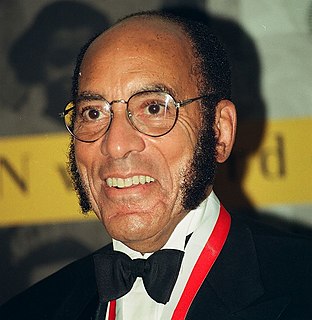A Quote by Janelle Monae
Black history is part of American history, and it should be treated as such.
Quote Topics
Related Quotes
Black History is enjoying the life of our ancestors who paved the way for every African-American. No matter what color you are, the history of Blacks affected everyone; that's why we should cherish and respect Black history. Black history changed America and is continuing to change and shape our country. Black history is about everyone coming together to better themselves and America. Black history is being comfortable in your own skin no matter what color you are. Black history makes me proud of where I came from and where I am going in life.
Adam Clayton Powell's entire political career has to be looked at in the entire context of the American history and the history of, and the position of the Afro- American or negro in American history. [He] has done a remarkable job in fighting for rights of black people in this country. On the other hand, he probably hasn't done as much as he could or as much as he should because he is the most independent negro politician in this country.
The real invasion of South Vietnam which was directed largely against the rural society began directly in 1962 after many years of working through mercenaries and client groups. And that fact simply does not exist in official American history. There is no such event in American history as the attack on South Vietnam. That's gone. Of course, It is a part of real history. But it's not a part of official history.
I used to come out here every Fourth of July as a child to picnic and to swim on the island, to tour the fort and wander through it. And all of that time, I never knew anything about the presence of black soldiers on the island. And so, for me, this was a way of trying to tell another history, a lost or a forgotten or a little-known history about these black soldiers who played an important part in American history.” Trethewey said.
Coincidentally, she was born “exactly 100 years to the day that Mississippi celebrated the first Confederate Memorial Day, April 26, 1866.
White America has seen to it that Black history has been suppressed in schools and in American history books. The bravery of hundreds of our ancestors who took part in slave rebellions has been lost in the mists of time, since plantation owners did their best to prevent any written accounts of uprisings.




































